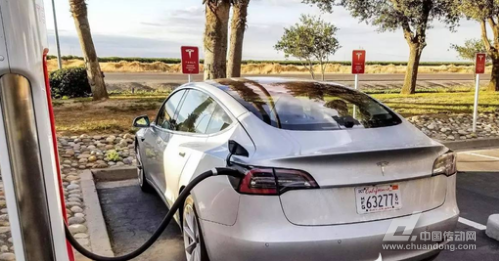
Privacy statement: Your privacy is very important to Us. Our company promises not to disclose your personal information to any external company with out your explicit permission.
Before the issuance of electric vehicle production licenses was suspended by the state, the country believes that the current development of electric vehicles must face more difficulties. Moreover, large quantities of electric vehicles are put into the market, and the output is not controlled, which seriously undermines the market order.

On November 14, according to reports, sources revealed that the Chinese government is considering resuming the approval of electric vehicle production licenses, which will open the door for Ford, Tesla and local car manufacturers to produce electric cars. It is reported that the National Development and Reform Commission of China has been evaluating the issue of overcapacity of electric vehicles. Sources said that the work related to electric vehicle production licenses will be resumed at the earliest or in the first half of next year.
The National Development and Reform Commission suspended the issuance of electric vehicle production licenses earlier this year to control the expansion of production capacity. It is currently estimated that more than 2 million new energy vehicles will be added each year, and relevant agencies are reassessing the production of electric vehicles.
The National Development and Reform Commission did not comment on the reopening of the permit, saying that it is currently revising the current licensing plan and hopes to raise the threshold for new entrants.
Since March 2016, China has issued 15 electric vehicle manufacturing licenses. Domestic manufacturers Wanxiang Group and joint ventures between Volkswagen and domestic manufacturers are among them, which also promotes competition in the automotive industry. Followed by, smart TV and air conditioner manufacturers are planning to enter the new energy automotive industry.
Most importantly, foreign automakers Ford and Tesla are preparing to enter the Chinese electric vehicle market to meet the increasingly stringent local carbon emissions and fuel economy requirements. The new joint venture between Ford and Anhui Zhongtai Automobile Company plans to apply for the establishment of a factory to produce 100,000 pure electric passenger vehicles each year. According to reports, Tesla has already reached a preliminary agreement with the Shanghai government for production on the ground. CEO Elon Musk told investors this month that the company is three years away from starting production in China.
The licensing program is also a key measure for the Chinese government to manage the world's largest new energy vehicle market. The Chinese government announced last week that it will conduct pilots by June next year to allow foreign automakers to set up wholly-owned electric car factories in the free trade zone. Starting in 2019, China will require most automakers to obtain new energy vehicle ratings, and if they do not meet the requirements, they will face rectification or penalties.
With strong national support, China surpassed the United States in 2015 to become the world's largest new energy vehicle market, including pure electric vehicles, plug-in hybrid vehicles and fuel cell vehicles. According to statistics from China Association of Automobile Manufacturers, a total of 507,000 new energy vehicles were sold nationwide last year. China has suspended the expansion of its traditional gasoline vehicle production capacity. The goal is to increase the annual sales of new energy vehicles to 2 million by 2020.
February 13, 2023
February 10, 2023
이 업체에게 이메일로 보내기
February 13, 2023
February 10, 2023

Privacy statement: Your privacy is very important to Us. Our company promises not to disclose your personal information to any external company with out your explicit permission.

Fill in more information so that we can get in touch with you faster
Privacy statement: Your privacy is very important to Us. Our company promises not to disclose your personal information to any external company with out your explicit permission.